In a spacious hall with blues music playing in the background, a staff member of the Kunlun Jing An Shanghai Hotel enthusiastically met us with a sincere smile, making us feel at home.
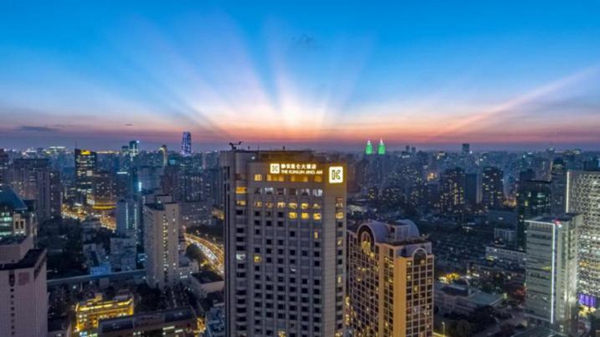
(The outer view of the Kunlun Jing An Shanghai Hotel.)
Located in the bustling Jing’an district, Kunlun Jing An’s precursor was the Shanghai Hilton, a Sino-foreign cooperative enterprise.
In 1988, the Hilton Hotel opened in Shanghai, becoming one of the first five-star international hotel brands to settle in the city. On January 1, 2018, the 30-year-old Shanghai Hilton Hotel officially changed its name to Kunlun Jing An, managed by Jiang Premier Hotel Management Co., Ltd., Jinjiang’s own hotel management company.
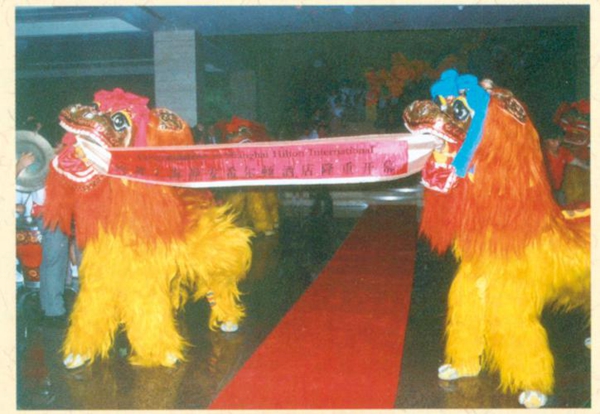
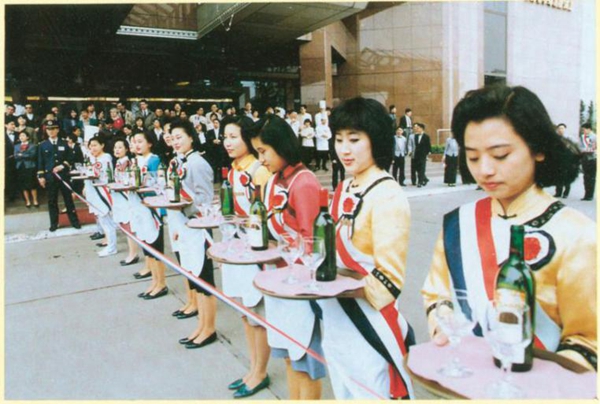
(The opening ceremony of the Shanghai Hilton Hotel.)
Although the Hilton Hotel has changed its name, its hospitality is still perfectly preserved and has become a widely acclaimed name card.
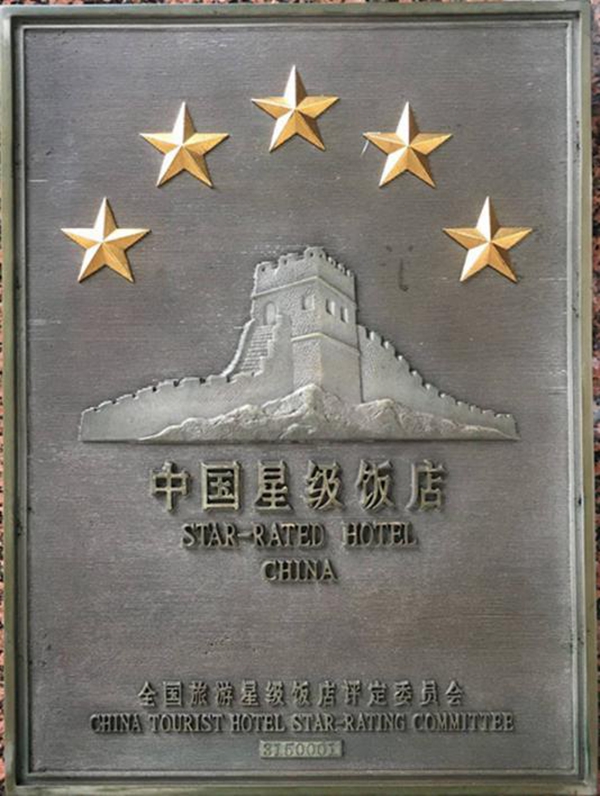
(The nameplate of the Shanghai Hilton Hotel.)
Chinese hospitality integrates hotel to city’s development
Gerd Gotz Otto Knuast, the general manager of the hotel, is a kind and friendly German. He has been engaged in the Chinese hotel industry for 30 years, since he was the executive deputy chef of the China World Hotel in Beijing. Knuast came to Beijing in 1991 after finishing his studies in Germany and obtaining a Master's degree in Business and Kitchen Management.
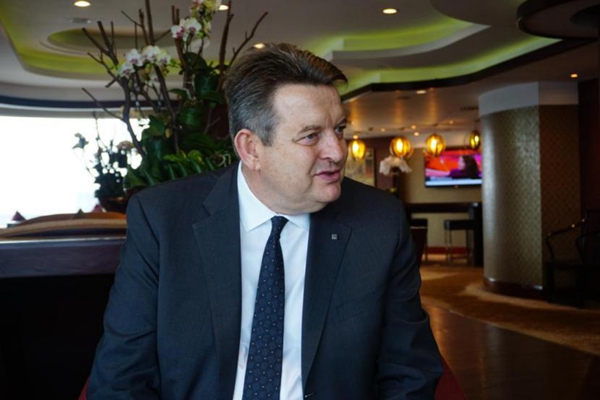
(Gerd Gotz Otto Knuast has an interview with Eastday.)
That year was also his first time to come to Shanghai. Compared with Beijing, the pleasant climate and relatively open environment of Shanghai impressed him a lot, motivating him to come back one day.
However, it was 20 years later before he was officially appointed as the General Manager of the Hilton Hotel, Shanghai, in November 2011 and returned to the city.
Speaking of the development of China’s hotel industry over the past two or three decades, he said, "I was a chef when I started in the hotel industry in China. At that time, many Chinese people could not afford to live in a five-star hotel. The Chinese economy has developed fast in the past few years and now many Chinese have been to five-star hotels.”
The development of the hotel industry is the epitome of China's economic development. “Not only our industry, but the whole of China is developing faster than other countries. Europe took 60 years to achieve its current achievements after World War II, and China has reached it in 25 years,” Knuast said, before introducing that when he came to Shanghai in the 1990s, there was only the Oriental Pearl TV Tower on the Bund with many factories next to it. After 20 years, the Bund and the whole city has become very modern, but still retain the Chinese characteristics and culture.
"Today, the behavior of customers has also changed a lot. Today’s customers look much younger but 20 years ago customers seemed to be 35-50 years old. Everything is changing. Shanghai is a fast-developing and dynamic city, we must adjust ourselves and be well prepared. "
Although many high-quality hotel brands have appeared in Shanghai in the past two or three decades, Kunlun Jing An has always maintained its leading position in Jing'an District, with a very strong customer base. In Knuast’s opinion, it is the warm service that has brought many customers back. Treating the guests as family and giving them smiles is the daily requirement he requests of his staff.
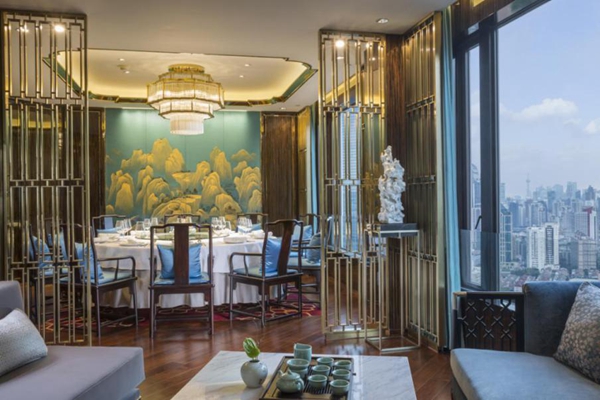
(The interior decoration of the Kunlun Jing An hotel.)
The hotel currently has 500 employees and 35% have been working here for 20 or 30 years. "They are the pillars here. Some old customers come back and even recognize their faces. It feels like going home. This is the difference between a historic hotel and a newly opened hotel. For Kunlun Jing An, it is a great advantage."
In terms of the decoration, besides the Chinese elements that have been integrated into the interior design, Kunlun Jing An Hotel also presents Chinese-style hospitality in the aspect of guest service with Chinese tea and teapots, various styles of Chinese food and special Chinese TV channels, allowing overseas guests to experience Chinese culture more closely.
Public welfare gives back to society
While integrating into the city's development, Kunlun Jing An Hotel has been rewarding this ever-changing city, for example servicing the Rolex Shanghai Masters for 16 consecutive years, the F1 Chinese Grand Prix for 14 years, and the Equestrian Championship for 4 years.
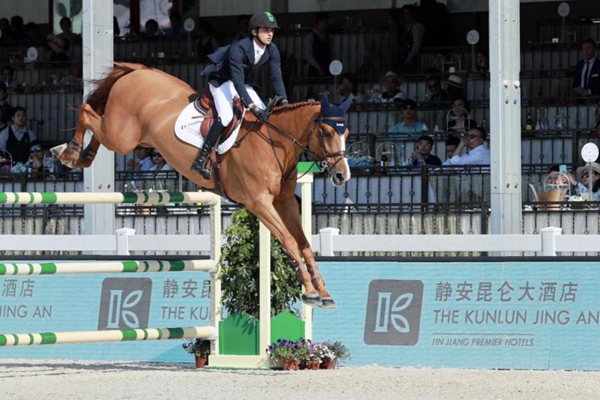
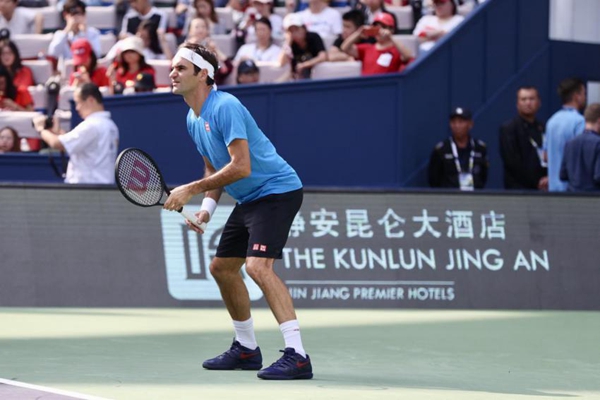
(Kunlun Jing An Hotel provides service for the Equestrian Championship and the Rolex Shanghai Masters.)
In 2018, despite the transformation from an international brand to a high-end independent brand, the hotel still received favorable comments from all walks of life when serving the first China International Import Expo (CIIE). Knaust proudly introduced that during the Expo last year, the hotel hosted four national delegations who were very satisfied with the service. “CIIE is a very important thing for the Shanghai government. We want to show the best of Shanghai. This is a responsibility. So we work hard to cooperate with all sides including the Public Security Bureau to ensure good service for the guests participating in CIIE. I am very satisfied with the outstanding performance of our team, they are very responsible and very efficient. Our team is like a family, their success is my success," said Knaust.
Besides offering service to international competitions and exhibitions, the hotel has been actively practicing social responsibility for many years. Under the leadership of Knaust, the hotel established the “Kunlun Care Committee” which often organizes various charity activities, such as leading employees to establish contact with Pudong Renji Hospital, setting up a care home for children with leukemia, and sending books and gifts to sick children.
Speaking of going to the hospital to see the sick children, Knaust couldn't help but show his grief and sympathy. His eyes were full of sadness, and his choking voice also revealed helplessness. "The doctor told me that these children got cancer. They can only live for 5 months. I sit and chat with their mothers and comfort them. Maybe you will say that this is life," he paused, tears swirling in his eyes, "but it’s really sad. You will feel how lucky you are with no illness, no accidents."
Knaust feels that these kind of good deeds are normal. “In the past when I was a chef, I often helped others by cooking. I am fortunate that now I can make more money to help others. We support others and create a future for them. When they grow up, they will also think of helping others.”

(Knaust anh his team go to a children's hospital to see the sick children.)
In terms of the inheritance and development of Chinese food, Knaust has a unique understanding. In his view, the traditional Chinese food culture is unique and has great potential for development, but many Chinese who open restaurants overseas actually have lost the essence of Chinese food culture when they are trying to localize.
In comparison, his hotel is quite serious in inheriting the Chinese food culture. When Jinjiang International acquired the European Radisson Blu Group, it sent 20 foreign employees to Shanghai to learn about Chinese food. In addition to taking them to taste Chinese food and teaching them Chinese culture, a team of professional chefs were also invited to teach them how to make traditional Chinese dishes, including porridge, wontons, noodles, and Hainanese chicken rice. “We also recorded the teaching videos and shared them with them so that the kitchen team in Europe can also learn. In addition, we also sent several Chinese chefs to Europe to teach, so that Chinese people can eat authentic Chinese food when they go to Europe and stay at the hotel."
For the city of Shanghai, Knaust has a deep emotion. “Shanghai is a city that I want to stay in longer. I wish that Shanghai will continue to prosper in the process of realizing the Chinese dream, building itself into a financial and science-innovation center, and a world-class city.”
